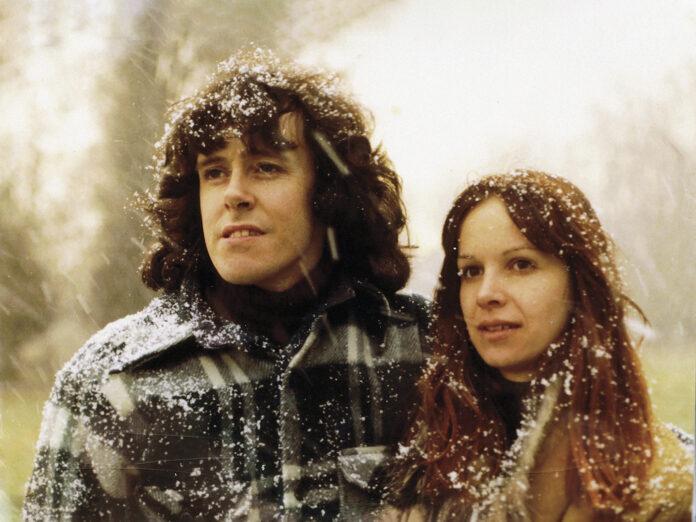Latching onto the prevailing spirit of glam-rock, 1973’s Cosmic Wheels was Donovan’s last significant success. The intervening years saw him undergo what amounted to a long slow fade from public view, once sending himself up in song as “A Well Known Has-Been” and quitting completely for over a decade. Even Rick Rubin couldn’t salvage his fortunes in the ’90s.
Latching onto the prevailing spirit of glam-rock, 1973’s Cosmic Wheels was Donovan’s last significant success. The intervening years saw him undergo what amounted to a long slow fade from public view, once sending himself up in song as “A Well Known Has-Been” and quitting completely for over a decade. Even Rick Rubin couldn’t salvage his fortunes in the ’90s.
KEITH RICHARDS IS ON THE COVER OF THE NEW UNCUT – HAVE A COPY SENT STRAIGHT TO YOUR HOME
Given the above, plus only sporadic bouts of activity since, it’s sometimes easy to overlook Donovan’s legacy. But the ’60s would’ve been a very different place without him. A leading light of the counterculture, he transitioned from Dylan-a-like folkie (“Catch The Wind”) to psychedelic pioneer (“Sunshine Superman”) in little more than 12 months, marking him out as flower power’s poster boy, both here and in the States. Future members of Led Zeppelin served as his studio band. He taught fingerpicking to The Beatles, took part in anti-war protests and became the first major British pop star to get busted for pot. Whichever way you came at it, Donovan was news.
By late 1967, following a rack of hit singles and big albums, he had enough cachet to pitch his most ambitious idea yet. A Gift From A Flower To A Garden was to be a double album, presented as a boxset – customarily the preserve of classical or “serious” music – that deepened his mission to bridge pop, folk, jazz, psychedelia and poetry.
A Gift… was conceived in two distinct halves. Disc One, the idealistic Wear Your Love Like Heaven, rolled out an alternate world for Donovan’s generation, one that sought to transcend the socio-political chaos of the day. The second disc, For Little Ones, was intended for the children of the future – a romantic idyll of innocence and imagination. No doubt Donovan knew he might be in for a kicking. On a cynical level, this utopian dream could be dismissed as symptomatic of the age, a naïve folly by a wealthy hippie divorced from everyday life. But the sheer sincerity of his approach, and the ravishing melodic beauty of much of this music, is enough to disarm the toughest sceptic.
“Wear Your Love Like Heaven” feels like a simple prayer, Donovan inviting divine will over a baroque blend of guitar, organ and flute. Like several songs here, it relies on painterly allusions for lyrical colour, flooded with acute visions of Prussian blue, scarlet fleece, alizarin crimson and so on. The notion of spiritual deliverance extends into the almost childlike “Skip-A-Long Sam”, a trippy folk-jazz shuffle lightly dusted with piano. Here, Donovan evokes both William Blake and Lewis Carroll in his mystical depictions of secret doors to the underworld. He even smuggles a line from Carroll into a musical adaptation of Shakespeare’s “Under The Greenwood Tree”, from As You Like It.
Chops, too, to Donovan’s studio hands, particularly flautist Harold McNair and keyboard player Mike O’Neill. The arrangements are quietly sophisticated, whether spinning “There Was A Time” into a kind of psychedelic madrigal or shifting tempos on the gorgeous “Sun”, possibly the most underrated song in Donovan’s entire canon. A prophetic eco fable prone to sudden outbreaks of pastoral jazz, it depicts a future of dry oceans, decimated trees and baking temperatures. “Life’s very unstable,” sings Donovan, his diction characteristically precise. “It’s built upon sand.”
By contrast, the settings of For Little Ones are simpler. Donovan’s voice and acoustic guitar drive most of these tunes about tinkers, starfish, magic forests and quixotic seekers. But these aren’t children’s songs in the traditional sense. Instead, their wonder and sophistry are very much aligned to Disc One, Donovan offering a richly poetic and often flowery discourse on the value of imagination.
It includes a tender tribute to Derroll Adams – “this banjo man with a tattoo on his hand” – on “Epistle To Derroll”, which traces a route back to Donovan’s own formative years. But perhaps the key song here is “The Enchanted Gypsy”. A reference to running buddy Gypsy Dave, the lyrics follow a metaphorical trail that suggests Donovan was within reach of what he’d always been looking for: “And a vision I saw/As the crow did craw/No more did I go searching-o.”
For all its pied piper conceit, A Gift From A Flower To A Garden ultimately feels like an intensely personal voyage of transformation. It’s still not clear whether Donovan was merely chasing castles in the air or had stumbled on a gateway to nirvana. But the joy, as is so often the case, lies in the rhapsodic journey.



